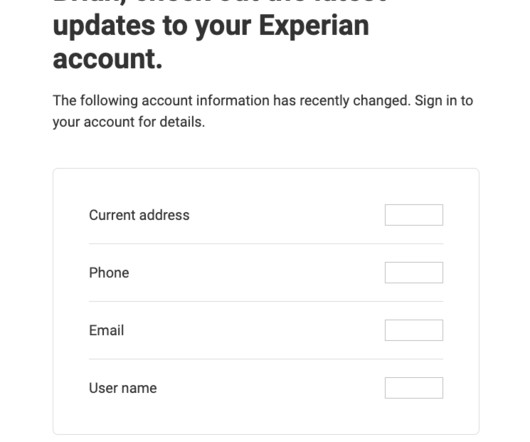The Wages of Password Re-Use: Your Money or Your Life
Krebs on Security
MAY 4, 2021
When normal computer users fall into the nasty habit of recycling passwords, the result is most often some type of financial loss. Our passwords can say a lot about us, and much of what they have to say is unflattering. Interestingly, one of the more common connections involves re-using or recycling passwords across multiple accounts.














Let's personalize your content